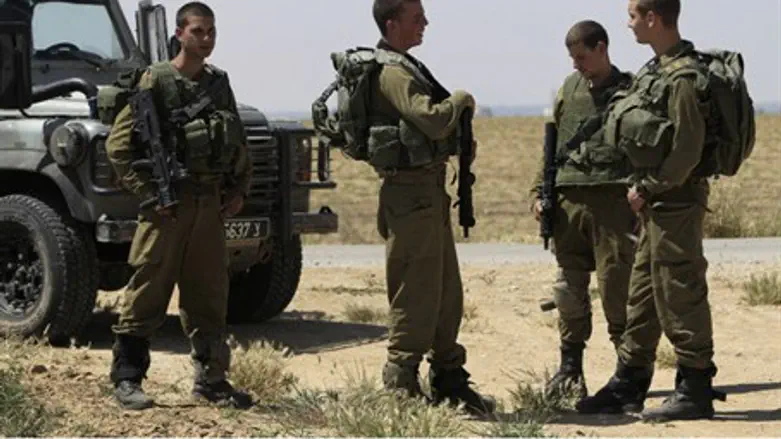
The Ministry of Defense said Thursday that it will no longer be posting soldiers to guard individual communities along the border with Gaza and Sinai, opting instead for other means of providing security for the residents.
The military said last week that it will stop posting soldiers as guards in 13 communities along the Gaza and Sinai borders, and also in nine northern communities. It claims the decision is not budget-related but the result of tactical analysis it has carried out.
Local leaders in the Gaza Belt are disappointed by the decision. Alon Shuster, Haim Yelin and Yair Farjoun, who head the regional councils along the southern border, said the decision is misguided and "cold hearted," and indicates "a misunderstanding of reality."
Defense Minister Moshe Yaalon refused to accept alternative plans, in which only the most severely threatened communities would continue to receive protection by soldier guards.
"The establishment's decision and the unilateral way the soldiers are leaving the communities, weakens the population and creates a feeling of disrespect and disdain for the residents' feelings of security," the leaders said.
Yelin, who heads the Eshkol Regional Council, said last month, when it first became clear that the IDF intends to pull the soldiers from the communities, that the decision "exposes the residents to dangers in the face of the terror organizations, particularly in a period at which the border with Egypt is becoming less secure."
"The decision contradicts the values of Zionism and the settlement enterprise," he said. "One cannot fathom budget cuts that hurt the security of the residents who settle along the country's borders and their feeling of security in such a meaningful way.
A senior IDF officer told reporters last week that the changes in the way communities are guarded follow an analysis conducted by the military, according to which troops are more effectively used when they are deployed along the border, carrying out reconnaissance and patrols, than when they are stationed in the individual communities.